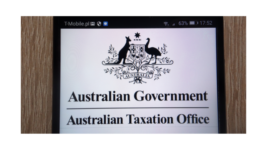ATO Investigates 40,000 Aussies Over Alleged Tax Fraud Scheme

The ATO has more than 40,000 Australians in its sights, as it begins investigating what it says is a fraudulent scheme that’s cost the community around $850 million.
Individuals warned they are responsible for their conduct
The scheme, promoted through numerous suspect social media platforms, encourages people to create fake businesses and submit false activity statements order to claim GST refunds. It is estimated that the average ‘refund’ has been in the order of $20,000.
The scheme has been touted online as a ‘tax loophole’ but it clearly is not, and Australians are being warned they could be criminally prosecuted for their actions despite the online advice they may have received.
The ATO has confirmed it is working with social media companies to have the material taken offline, as well as with banks and other financial institutions including AUSTRAC-led Fintel Alliance and the Reserve Bank of Australia in order to identify and prosecute alleged offenders.
If it sounds too good to be true…
During the past couple of years, people across the nation have done it tough.
Many have been tempted to explore alternative income sources and investment opportunities, and with the rise of ‘fin-influencers’ (financial influencers) on Instagram, Facebook and YouTube, many are accessing what they consider to be sound financial advice – while instead potentially putting themselves on the wrong side of the law.
As the old adage goes: “If it sounds too good to be true, it probably is”. And, unfortunately, a lack of knowledge of taxation laws is no defence against liability.
The ATO is calling for anyone who has registered a fake business to make fraudulent GST claims to come forward – although ‘fessing up’ doesn’t necessarily means avoiding the consequences.
“We are urging anyone involved to face the music and come forward now rather than face even tougher consequences later, including penalties and criminal charges”, said ATO Deputy Commissioner Will Day.
Rise of cryptocurrencies
One leading tax expert says the ATO will also be looking at failures to declare income from cryptocurrencies, hundreds of which are being touted on social media sites as ‘the next big thing’:
“The ATO will also be taking a closer look at the booming market in investments in cryptocurrencies like Bitcoin”, H & R Block’s Director of Tax Communication Mark Chapman warned.
“Increasing numbers of taxpayers are jumping on the bandwagon and the ATO believes that some of them are failing to declare the profits (and in some cases the losses) they are making on their investments.
“Remember, investing in cryptocurrencies can give rise to capital gains tax on profits. Traders can be taxed on their profits as business income.”
Pursuing hard working Aussies while ignoring big business
The ATO has long been criticised for setting its sights on, and relentlessly pursuing, ‘hard working Aussies’ while at the same time, turning a blind eye to the fact that large corporations and multinational organisations get away with paying little-to-no tax.
Only weeks ago, a report by the Australian National Audit Office (ANAO) revealed that the ATO had failed to collect billions of dollars in unpaid superannuation on behalf of employees – although such a failure can amount to a criminal offence.
Large multinational companies and the wealthy elites often spend large sums of money to create and register instruments to minimise and even avoid paying tax altogether, and they are also able to use their vast resources to stretch out their disputes for years on end – costing Australian taxpayers millions in the process.
For example, in 2019 Google finally paid its massive $481.5 million tax bill after battling the ATO for ten years before doing so. Other international companies such as Microsoft and Apple also took years to settle up.
It is often said that Australia has one of the most complex tax regimes in the western world, which places a formidable responsibility on individuals and local small and family-operated businesses, but tends to favour global mega-entities like Netflix, which pays virtually no tax here – and isn’t breaking the law.
Investing heavily in tax compliance
In the past several years, the Federal Government has invested heavily in the ATO, which means that it has significant resources to conduct its investigations, and it is hoped this may assist in enabling the office to pursue big business.
The office has wide-ranging powers, and can access a great deal of personal and financial information including bank accounts, financial record, and government departments such as Centrelink.
Reverse burden of proof
The problem is that when the ATO comes knocking, it’s often up to the suspected person to ‘prove their innocence’, or be slugged with a hefty penalty.
This is not the same as the way courts of law operate.
In a criminal court, the burden of proof is on the prosecutor who must prove, beyond a reasonable doubt that the accused person (defendant) has broken the law.
The difficulty of processes and procedures which involve ‘reverse onus of proof’, as was highlighted time and again with the Robo Debt debacle, is that it can place enormous stress and additional financial burden on people who have been accused of doing the wrong thing. In some cases, people have spent months, or even years battling the ATO – a massive disruption to their lives.
Tax fraud offences in Australia
The main offences for prosecuting tax fraud, also known as tax evasion, are contained in sections 134 and 135 of the Criminal Code Act 1995 (Cth).
Some of the most frequently prosecuted subsections are as follows:
Obtaining property by deception
Obtaining property by deception is an offence under section 134.1 of the Criminal Code Act 1995 which carries a maximum penalty of 10 years in prison.
To establish the offence, the prosecution must prove beyond reasonable doubt that:
- You dishonestly obtained property belonging to another,
- You did so by a deception,
- You intended to permanently deprive the other of the property, and
- The property belonged to a Commonwealth entity.
An act is considered ‘dishonest’ even if you intended to pay for it.
You are considered to have ‘obtained property’ if:
- You received ownership, possession or control of it for yourself or another person,
- You enabled ownership, possession or control to be retained by yourself,
- You induced a third person to pass ownership, possession or control to another person, or
- You induced a third person to enable another to retain ownership, possession or control of it.
‘Deception’ means an intentional or reckless deception, whether by words or conduct, and whether as to fact or law, and includes:
- A deception as to your intentions or that of another person, and
- Conduct that causes a computer, machine or electronic device to make a response you are not authorised to cause.
You ‘intended to permanently deprive’ another even if you did not mean for the other to permanently lose the property as long as you intended to treat the property as your own to dispose of regardless of the other’s rights.
Obtaining financial advantage by deception
Obtaining a financial advantage by deception is an offence under section 134.2(1) of the Criminal Code Act 1995 which also carries a maximum penalty of 10 years in prison.
To establish the offence, the prosecution must prove beyond reasonable doubt that:
- You dishonestly obtained a financial advantage from another,
- You did so by a deception, and
- The advantage was obtained from a Commonwealth entity.
Conspiracy to defraud
Conspiracy to defraud and thereby obtaining a gain is an offence under section 135.4(1) of the Criminal Code Act 1995 (Cth) which also carries a maximum penalty of 10 years in prison.
To establish the offence, the prosecution must prove beyond reasonable doubt that:
- You conspired with another person with the intention to obtain a gain,
- You did so dishonestly, and
- The gain was from a Commonwealth entity.
The prosecution does not need to prove that you knew the gain was from a Commonwealth entity or that the proposed act was possible to commit.
However, it does need to prove that:
- You entered into an agreement with at least one person,
- You intended to carry out an act under that agreement, and
- You committed an overt act under that agreement.
General dishonesty to obtain a gain
General dishonesty to obtain a gain is an offence under section 135.1(1) of the Criminal Code Act 1995 which also carries a maximum penalty of 10 years in prison.
To establish the offence, the prosecution must prove beyond reasonable doubt that:
- You acted with the intention to obtain a gain from another,
- You did so dishonestly, and
- The other was a Commonwealth entity.
It is not necessary for the prosecution to prove that you knew the other was a Commonwealth entity.
Obtaining a financial advantage
Often in tax fraud cases, the prosecution will often an alternative, less-serious offence to those listed above in order to encourage a potential guilty plea.
One of these alternative offence is contained in section 135.2 of the Criminal Code Act 1995 and carries a maximum penalty of 12 months in prison.
To establish the offence, the prosecution must prove beyond reasonable doubt that:
- You engaged in conduct that caused you or another to obtain a financial advantage,
- You knew or believed that you or the other was not eligible to receive that financial advantage, and
- The advantage was obtained from a Commonwealth entity.
Defences to the charges
In addition to having to prove each element (or ingredient) of the particular offence, the prosecution must also disprove to the same standard any legal defence raised on the evidence.
If it us unable to do so, you are entitled to an acquittal; that is, a finding of not guilty.
Legal defences to the charges include duress and necessity.
Accused of a tax offence?
If you have received a letter from the ATO claiming you have a tax debt, or have engaged in fraudulent activity, call Sydney Criminal Lawyers anytime on (02) 9261 8882 for expert advice and formidable representation from our team of experienced defence lawyers.
Receive all of our articles weekly
Related Articles
RELATED LEGISLATION
- Section 134.1 Criminal Code Act 1995 | Obtaining Property by Deception
- Section 134.2 Criminal Code Act 1995 | Obtaining Financial Advantage by Deception
- Section 135.4(3) Criminal Code Act 1995 | Conspiring to Dishonestly Cause a Loss
- Section 135.4 Criminal Code Act 1995 | Conspiracy to Defraud
- Section 135.2 Criminal Code Act 1995 | Obtaining Financial Advantage








